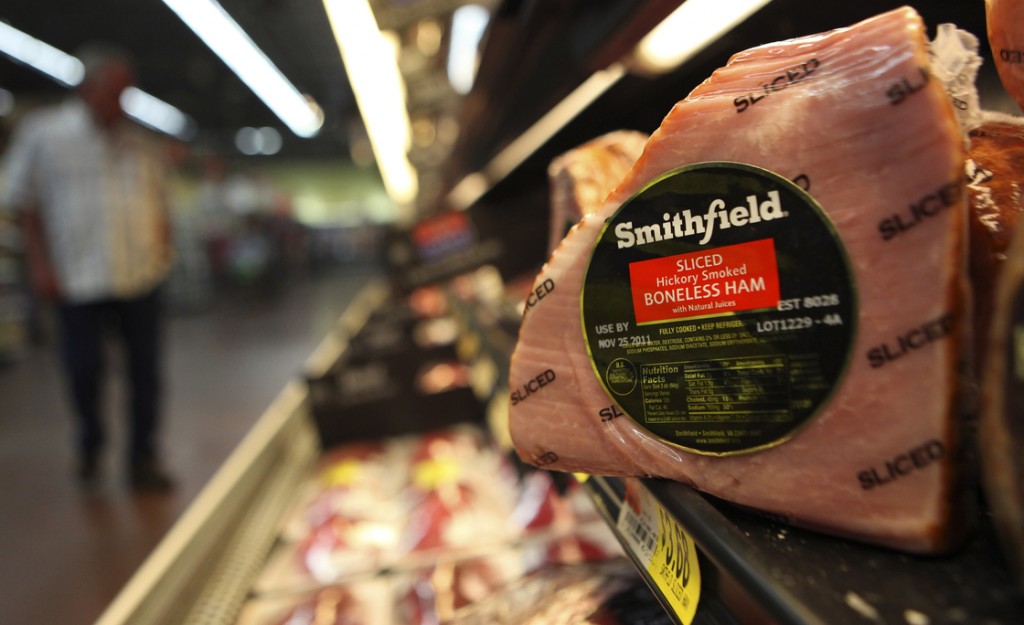But several senators weren't buying the bacon-will-be-unbroken story once Hong Kong-based Shuanghui International Holdings owns Smithfield.
Worried about the impact on the U.S. consumer, farmer and even the taxpayer, they expressed qualms about Chinese intentions.
"Is Shuanghui focused on acquiring Smithfield's technology, which was developed with considerable assistance by U.S. taxpayers?" asked Debbie Stabenow, the Michigan Democrat who chairs the Senate committee.
"Can we expect that after the company has adopted Smithfield's technology and practices, they will increase exports to Japan, our largest export market, in competition with U.S. products?" she asked in her prepared statement.
Stabenow also raised questions about:
- Fairness. "Can we really expect increased access for our pork products in China?"
- Consumers. "Will we see volatility in prices?"
- Precedent. "One pork company alone might not be enough to affect our national security, but it's our job to be thinking about the big picture."
The deal is being reviewed by the Committee on Foreign Investment in the United States, known as CFIUS, which monitors and reviews foreign investments.
Pope deflected Stabenow's questions with upbeat assessments. Having Shuanghui purchase Virginia-based Smithfield would "provide enormous benefits for our two companies," he said. "It is a partnership that is all about growth."
For one thing, the transaction would generate a windfall for Smithfield shareholders. Pope said Shuanghui is offering $34 per share in cash, a 31 percent premium over the company's closing stock price on May 28, the last trading day before the deal was announced.
But one of the witnesses before the panel suggested the deal would be a lousy one for consumers.
The transaction will indeed provide "short-term benefits to Smithfield's managers, shareholders and pension funds," said Usha Haley, director of West Virginia University's Robbins Center for Global Business and Strategy. "However, the medium- and long-term benefits to U.S. consumers, industry and society are highly questionable."
Haley said in prepared testimony that the Chinese company has a poor reputation for food purity. "Shuanghui's and China's food-industry culture exudes outrageous food-safety violations and a history of food adulteration," she said.
"Shuanghui apologized in March 2011 over illegal additives found in its meat and halted output after a CCTV report that farmers in Henan province fed the additive to their pigs and then sold them to a Shuanghui slaughterhouse," Haley said.
But Pope said nothing will change in this country. Shuanghui "is committed to maintaining Smithfield's operation, staff and management," he said.
Smithfield, founded in 1936, has 46,000 U.S. workers, more than half of whom belong to the United Food and Commercial Workers union.
"Shuanghui will honor the collective bargaining agreements in place with Smithfield's union-represented employees," Pope said.
He said the transaction would "drive growth ... for the entire U.S. pork industry" because China has a rapidly growing middle class.
Those wealthier Chinese consumers have a hunger for "more and better-quality protein in their and their family's diets," he said. "And pork is what is on the menu for Chinese consumers."
For the Chinese, pork is the No. 1 source of protein, while in this country, it's only No. 3 and "pork demand in the U.S. has been declining for almost 15 years," he said.
Stabenow recently led a group of senators in writing to the White House, urging the Obama administration to toughen the CFIUS review. Pope said Smithfield volunteered for the CFIUS review.
Copyright 2013 NPR.

